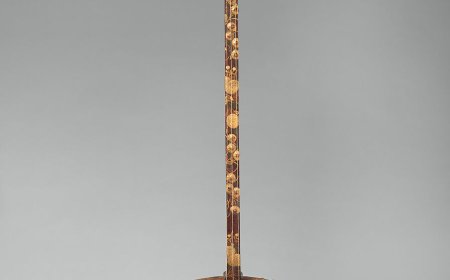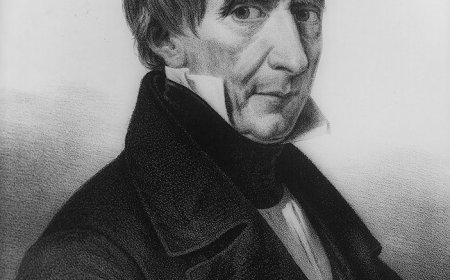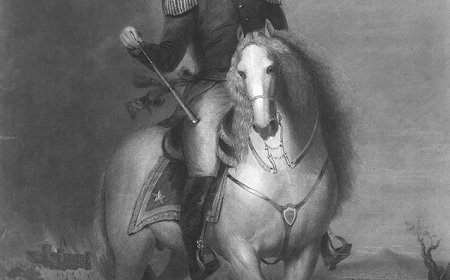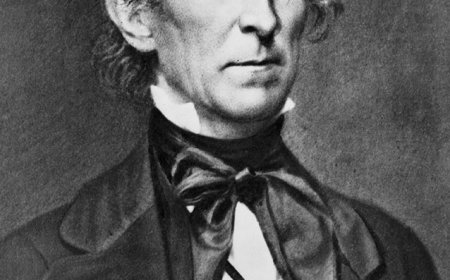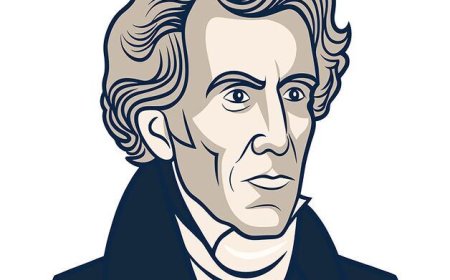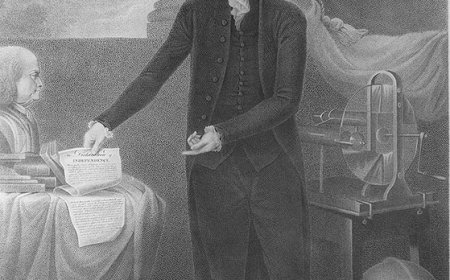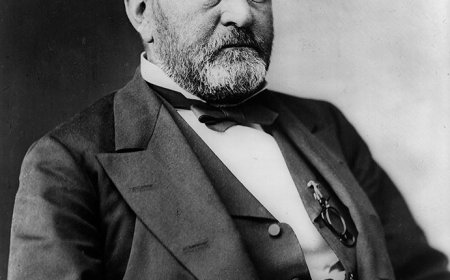Andrew Johnson Facts for Kids – Reconstruction & Impeachment Story
Learn about Andrew Johnson for kids. Discover how he became the 17th U.S. President, his role during Reconstruction, the impeachment trial, and his lasting legacy in American history
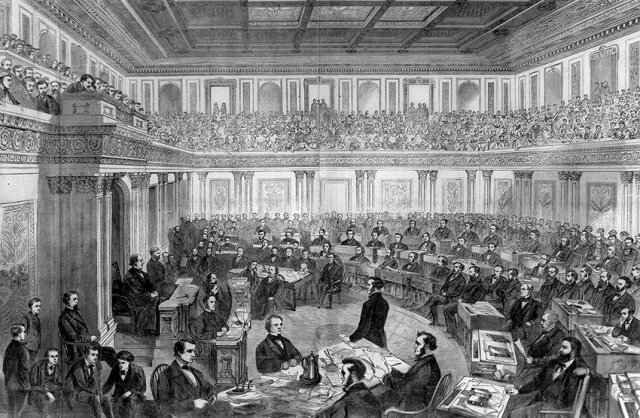
🇺🇸 Andrew Johnson Biography for Students | Reconstruction, Impeachment & Legacy
🧭 Introduction
Andrew Johnson became the 17th President of the United States after Abraham Lincoln was assassinated in 1865. He took office at one of the most difficult times in American history—just after the Civil War ended. Johnson’s job was to lead the country through Reconstruction, the time when the South was rebuilding and enslaved people were becoming free citizens. But Johnson’s presidency was full of arguments, and he became the first president in U.S. history to be impeached.
👶 Early Life and Education
Andrew Johnson was born on December 29, 1808, in a small log cabin in Raleigh, North Carolina. His family was very poor. His father died when Andrew was young, and he never went to formal school.
Johnson became a tailor’s apprentice at age 14 and taught himself to read and write. He later moved to Tennessee, where he opened his own tailor shop. He married Eliza McCardle, who helped him improve his reading and writing skills.
His story is one of the most dramatic examples of a “self-made man” in U.S. history—he rose from poverty to the presidency.
🏛 Political Career Before Presidency
Andrew Johnson entered politics as a champion of the working class and poor farmers. He served as:
-
Mayor of Greeneville, Tennessee
-
Tennessee state legislator
-
U.S. Representative
-
Governor of Tennessee
-
U.S. Senator
Although he was from a Southern state, Johnson opposed secession (leaving the Union) during the Civil War. President Lincoln made him Military Governor of Tennessee.
In 1864, Lincoln chose Johnson as his running mate to appeal to both Northern and Southern voters. Johnson became Vice President in March 1865, and just six weeks later, Lincoln was assassinated—making Johnson president.
🇺🇸 Presidency Overview
Johnson became president on April 15, 1865, the day Lincoln died. He was now in charge of healing a divided nation. The North had won the Civil War, and the South was destroyed. Millions of formerly enslaved people needed protection, rights, and opportunities.
Johnson’s presidency focused on Reconstruction, but his ideas clashed with many in Congress. He:
-
Opposed giving African Americans equal rights
-
Allowed former Confederate leaders to return to power
-
Vetoed laws meant to help formerly enslaved people
-
Fought constantly with the Radical Republicans in Congress
These disagreements led to a political battle that nearly ended his presidency.
⚖️ Domestic Issues and Reconstruction
Reconstruction was the effort to rebuild the South and reunite the country. Johnson’s approach was lenient to the former Confederate states. He:
-
Allowed them to rejoin the Union quickly
-
Did not require protections for African Americans
-
Vetoed the Civil Rights Act of 1866, which Congress later passed over his veto
Congress responded with stronger laws and created the Freedmen’s Bureau to help newly freed people with food, education, and jobs. Johnson opposed many of these efforts, which made him very unpopular in the North.
His battle with Congress led to his impeachment in 1868.
🚨 Impeachment Trial
In 1868, the House of Representatives impeached Johnson for violating the Tenure of Office Act, a law that said he couldn’t fire certain officials without Senate approval. Johnson had fired Secretary of War Edwin Stanton, leading to the charge.
Key facts about the impeachment:
-
Johnson was the first U.S. president to be impeached
-
The Senate held a trial to decide if he should be removed
-
He was not removed, missing conviction by just one vote
Though he stayed in office, his power was greatly weakened, and he did not run for re-election.
🌍 Foreign Policy and Global Relations
Johnson’s foreign policy was quiet but included:
-
Supporting the purchase of Alaska from Russia in 1867 (completed by Secretary of State William H. Seward)
-
Avoiding conflict with Britain and France
-
Encouraging trade and U.S. influence overseas
The Alaska deal was called “Seward’s Folly” at the time but later became a valuable expansion.
🧾 Legacy and Historical Impact
Andrew Johnson’s legacy is controversial. While he believed in the Constitution and states’ rights, his opposition to civil rights for African Americans and his fights with Congress hurt the country’s progress.
He is remembered for:
-
Being Lincoln’s successor during a critical time
-
Opposing equal rights for freed slaves
-
Becoming the first president to be impeached
-
Struggling to unite the country after the Civil War
Many historians rank him among the least successful presidents for failing to lead the nation toward fairness and equality during Reconstruction.
👨👩👧 Personal Life and Family
Johnson and his wife Eliza had five children. She was shy and sickly but helped support his learning and career. Johnson loved politics and debates but struggled with communication and compromise.
He returned to Tennessee after his presidency and was later elected U.S. Senator again—the only former president to return to the Senate. He died on July 31, 1875, at age 66.
💬 Famous Quotes
“This is a country for white men, and by God, as long as I am President, it shall be a government for white men.”
—A quote that shows Johnson’s racist beliefs and opposition to equal rights.
“The goal of my administration has been to restore the Union.”
—He believed in bringing the states back together, though he failed to protect civil rights.
💡 Interesting Facts About Andrew Johnson
-
He was the first U.S. president to be impeached.
-
He never went to school—he learned to read and write as a teenager.
-
He gave speeches while drunk during his vice presidency, embarrassing Lincoln.
-
He sewed his own clothes because he had been a tailor.
-
He is the only former president to serve in the U.S. Senate after his presidency.
📚 Vocabulary Words
| Word | Definition |
|---|---|
| Reconstruction | The time after the Civil War when the South was being rebuilt |
| Impeachment | The process of accusing a public official of wrongdoing |
| Tenure of Office Act | A law that limited the president’s power to remove government officials |
| Freedmen’s Bureau | A government agency that helped formerly enslaved people after the Civil War |
| Radical Republicans | A group in Congress that wanted full rights for African Americans |
👧 Kid-Friendly Summary
Andrew Johnson was the 17th president of the United States. He became president when Abraham Lincoln was killed. His job was to help the country rebuild after the Civil War, but he didn’t want to give equal rights to formerly enslaved people. He argued with Congress and became the first president to be impeached, though he was not removed from office. He didn’t do much to bring people together, and many think he made things worse during a very important time in history.
✅ Interactive Quiz
Q1: How did Andrew Johnson become president?
A. He was elected
B. He was chosen by Congress
C. He became president after Lincoln was assassinated
D. He won a war
Q2: What time period did Johnson lead during?
A. Civil War
B. World War I
C. Reconstruction
D. Great Depression
Q3: What happened to Johnson in 1868?
A. He was re-elected
B. He was impeached
C. He resigned
D. He moved to Alaska
Q4: What agency helped formerly enslaved people after the Civil War?
A. CIA
B. NASA
C. Freedmen’s Bureau
D. Treasury Department
Q5: Which amendment ended slavery after the Civil War?
A. First Amendment
B. Thirteenth Amendment
C. Fifth Amendment
D. Seventeenth Amendment
Scoring:
5/5 = ⭐ Johnson Justice Expert
3–4 = 👍 Nice Job
1–2 = 📘 Review Recommended




























